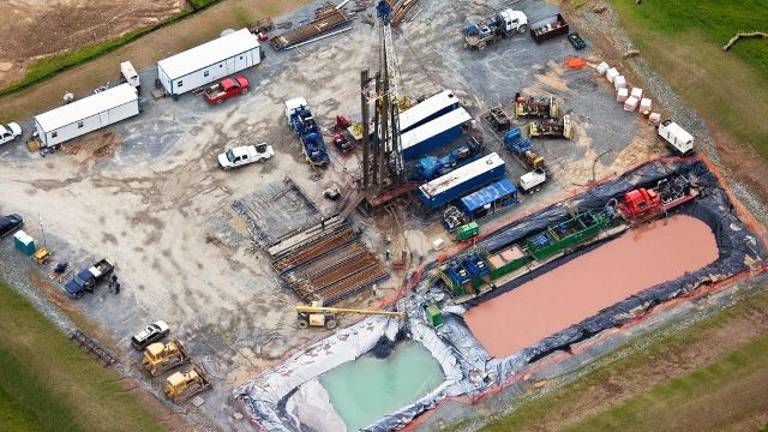'Incredible victory' pushes back on fracking

ALBANY — In what activists are calling "an incredible victory," New York will await the results of two Pennsylvania health studies before permitting hydraulic fracturing, or fracking, a controversial deep-drilling method used to extract natural gas from shale.
The recommendation to delay permits came from the state's health commissioner and was agreed to by the state's commissioner of environmental conservation.
"The decision to permit HVHF (High Volume Hydraulic Fracturing) involves complex questions about the impact of the process on public health," wrote Dr. Nirav Shah, the health commissioner, in a Feb. 12 letter to Joe Martens, head of the Department of Environmental Conservation.
Dr. Shah said his department was focused primarily on how fracking will affect drinking water and air quality, and fracking's "community impacts."
"The time to ensure the impacts on public health are properly considered is before a state permits drilling," Dr. Shah wrote. "Other states began serious health reviews only after proceeding with widespread HVHF. In my view, that is not the right approach for New York to take if we are serious that public health is the paramount question in making the HVHF decision. And as Health Commissioner, protecting the public health is my primary job."
Recent studies examine health effects
Dr. Shah goes on to say that in recent weeks, work has been "initiated or published by the scientific community to analyze these health impacts and which may help in addressing these areas." The two Pennsylvania studies — the Geisinger Health Study and the University of Pennsylvania study — are among the first comprehensive studies of fracking's health effects at either the state or federal level, he said.
Geisinger, which cares for many patients in areas of Pennsylvania where shale gas is being developed, is undertaking studies to analyze health records for asthma and other respiratory diseases, accidents and injuries, as well as birth outcomes.
The University of Pennsylvania study was only recently launched. It is being led by researchers from the University of Pennsylvania in collaboration with scientists from Columbia, Johns Hopkins, and the University of North Carolina.
Dr. Shah also cites the federal Environmental Protection Agency's progress report of the potential impact of fracking on drinking water resources. He said his department is still reviewing the 278-page document released a few weeks ago.
Commissioner Joe Martens agreed that New York needs more time. He said he and will join "his team in Pennsylvania and Washington in the coming days for first-hand briefings on these studies and their progress, which will assist in informing the New York review."
"I will not issue a final SGEIS (Supplemental Generic Environmental Impact Statement) until that review is complete and I have received Dr. Shah’s recommendations," he wrote on Feb. 12.
Catskill Mountainkeeper applauds the decision.
"As Mountainkeeper has long recommended, Dr. Shah is wisely taking the time to come to a careful decision about what needs to happen to protect New York from the harmful effects of fracking," stated Kathleen Nolan, MD, High Peaks Regional Director of Catskill Mountainkeeper. "We hope that his future plans include a call for a rigorous, comprehensive, open and participatory Health Impact Assessment that will define and quantify the full range of health hazards involved in the production and distribution of natural gas."